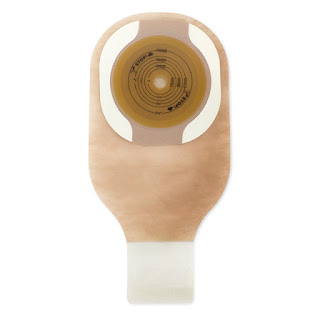It is an inevitable thing that people will stereotype other people who are different. It happens all the time and in many ways those stereotypes are correct, but it is a shame that it happens so often to those who have an ostomy. The immediate thought is that they are untouchable or you shouldn't be close to them. It really does hurt me on the inside to think about it and it is really only because of a lack of education on the general public. My goal has always been to enlighten and not shun those who are ignorant or who follow their misconceptions. Kindness when explaining and kindness when teaching a newcomer to the ostomy world is also a big part of the movement. For family members, this is extremely important.
When a person in your family goes through a surgery for an ostomy the family is part of it. They need to be educated on how to keep their loved one safe and really most of all they need to be educated on the fact that their loved one is still the same person with really the same capabilities. Yes, you are a more prone to hernias now that you have a stoma, but in general, with some training, most individuals live their life almost the exact same as before. So letting the family know that vacations are still on, and beach time is still a go is not only important to the family dynamic but also to the individual who just had surgery. Now I will say always listen to your healthcare provider because everyone's needs are different but in general, most people with an ostomy are fully capable of doing great and even crazy things.
Athletics are not off the table for people with a stoma. In fact, there are even Iron Man finishers who have done it with a stoma. That is an incredible feat as they are running a marathon, swimming several miles and biking 100 miles or so. All in one day. That is incredible and if you can train your body to do that with an ostomy then truly anything is possible. So take heart and have hope that all is not lost. Now, most Ostomy Doctors and Nurses are amazing and give such good information on care and how you go about living a happy life. I suggest listening to them and soaking up all the information even though it may feel a bit overwhelming. Learn, take your time, and jump into how your stoma works and all the gear that you will use and then master it. The faster you find what works best for your body the sooner you get to literally get back to doing your normal life.
For the most part, it is a big learning curve and then it is over. The learning more about gear that will help you be more athletic and get in the water is a bit of a learning curve, but I suggest youtube and of course, your doctor first is a good source of information. Follow people who live the lifestyle you have or want. They can give you amazing tips on how to do the things you are interested in and to do them without your own personal fail curve. Failing is a great part of life, but reinventing the wheel when the information is readily available is simply silly. So be safe and have fun!

















